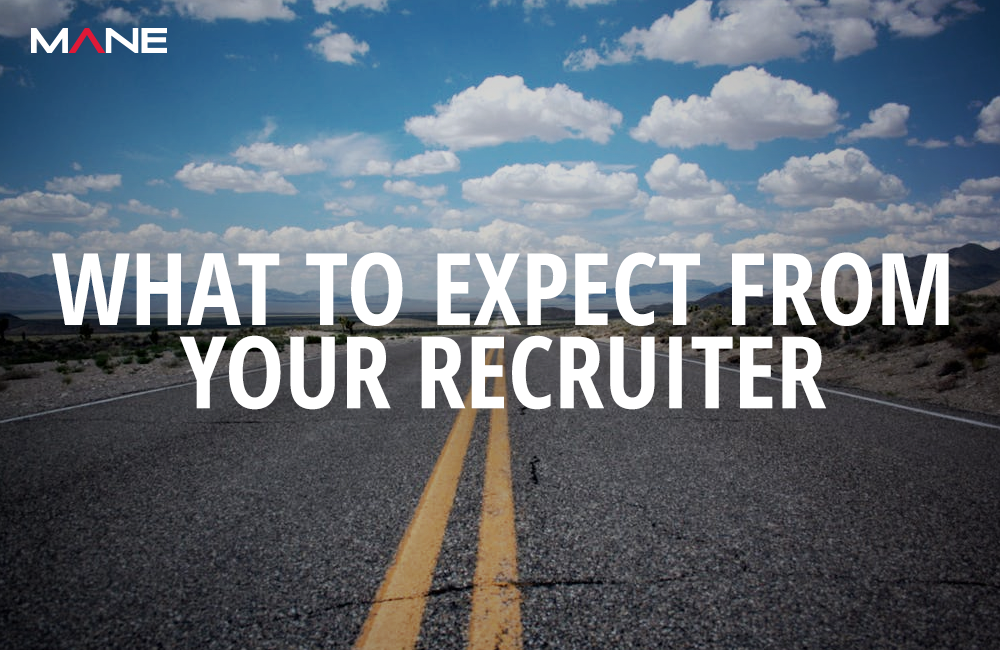What to expect when using a recruiter
13 Mar, 201810 minsWhen you’re looking for a new role, having a recruiter to help you in your search can be a t...

When you’re looking for a new role, having a recruiter to help you in your search can be a tremendous asset. It seems like a no-brainer having someone match you with roles based on your CV, experience and expectations. With a wealth of industry knowledge, working with a dedicated recruiter can take the stress out of finding your dream job.
It's important to understand what you can expect from a recruiter to ensure your expectations are met. A recruiter will listen to your wants & needs and work around what you’re looking for, but will also need to manage your expectations so you won’t be left without a job. Here’s what to expect when working with a recruiter:
To begin, a recruiter will have a different process for each type of candidate depending on where they are in their job search and the nature of the job they are looking for. There are generally two types of candidates – speculative & applying candidates.
1. Speculative Candidate
When a new role comes in, a recruiter will begin by looking through their database to find a suitable candidate for the position and contact them. They may also have a candidate in mind that they worked with previously – saving the effort of searching through their database.
If they have exhausted that resource, the recruiter will move onto reaching out and ‘headhunting’ candidates. Once a recruiter has gotten in touch with a potential candidate, they will introduce themselves and begin building a relationship, explaining the role they have on offer and asking if this would be a good fit for the candidate. If the candidate isn’t interested, the recruiter may still ask for their CV in case a more suitable role comes in the future. Similar to the beginning of the process, those candidates who offer their CV will most often be contacted first when a new role comes in. If the candidate is excited about the role, the recruiter will ask to represent them and gain their permission to share their details (CV or portfolio) with the client.
After the candidate's details have been sent over to the client, the recruiter will try to update the candidate as often as possible. This can be the part of the recruitment process that frustrates many job seekers as a lack of updates may appear that the recruiter hasn’t done anything. However, it is essential to understand that the recruiter is the middleman in this situation and it can be the client who is not updating the recruiter, leading to lack of communication down the ladder.
Upon receiving feedback regarding the application, the recruiter will contact the candidate and either arrange an interview, start date or let them know they haven’t been successful in this particular application. If the candidate is in interview stage, they may face a similar situation awaiting feedback; bear in mind that although businesses are eager to fill a role as quickly as possible, they will have several interviews to go through before making a final decision. The candidate will likely receive positive or negative feedback depending on how the interview went. The recruiter will deliver the news to the candidate and either help them find another role if unsuccessful or finalise details for the start of their new role. This process usually builds a relationship between the recruiter and candidate, so it’s common for a recruiter to check up on the candidate to see how they are getting on. If the work is on contract, then the recruiter may discuss upcoming roles to help the candidate stay in work or look to extend the contract if possible.

2. Applying candidates
When a candidate submits an application for a role, the recruiter will reach out to them and thank them for their application, running through the role and give clarity on any details.
The recruiter may ask the candidate some personal details such as reasons for leaving their current role, how much they earn and where they live. These are all to ensure that the job the candidate has applied for will be well-suited to them.
The process then follows a similar route to a speculative candidate, however, because the candidate has applied for the role, they may be eager to get feedback quicker. It is critical to reiterate that it takes time to review the CV and the client will most likely wait to review several CVs at once rather than each as they come in. Clients may also use a selection of recruiters, therefore, will have multiple CVs and options to go through.
If you’re considering using a recruiter to find your next job, we would recommend that you ask the recruiter about the hiring process for the role. Every recruiter works differently and some industries require more steps in the process such as medicals and trade testing. Having a recruiter to assist in your job search can ensure you get the most suitable role matching your skills and experience.
In the market for a new role? Get in touch with one of our specialist recruiters today:
info@mane.co.uk
+44 (0)1923 470 700
https://www.mane.co.uk/


